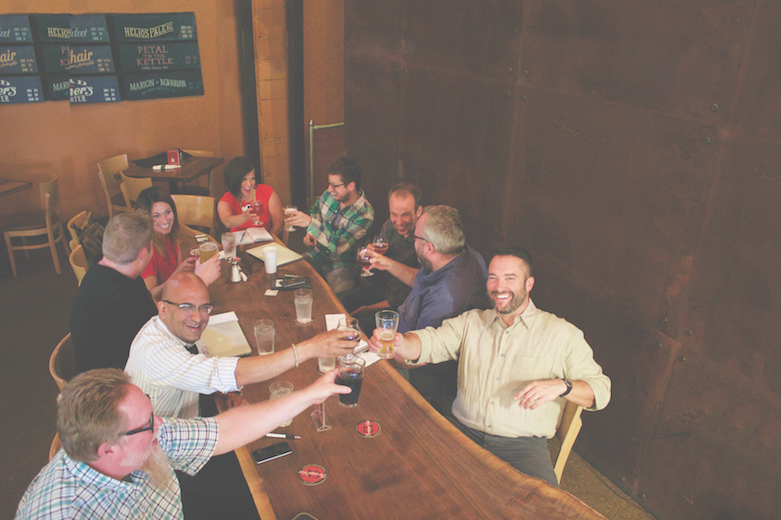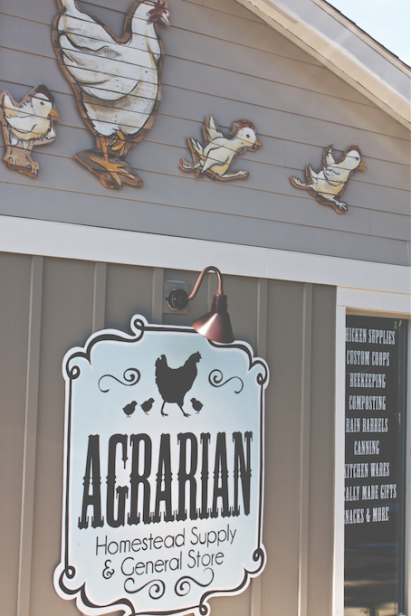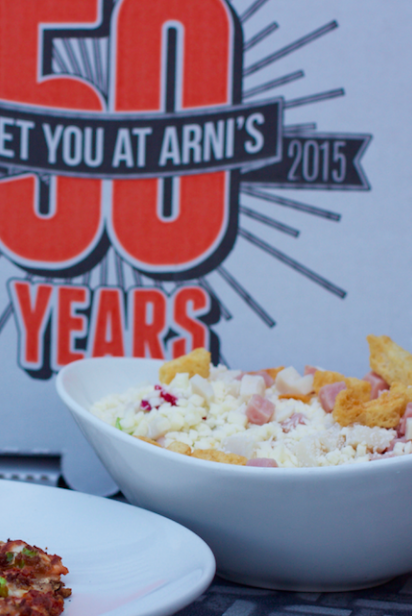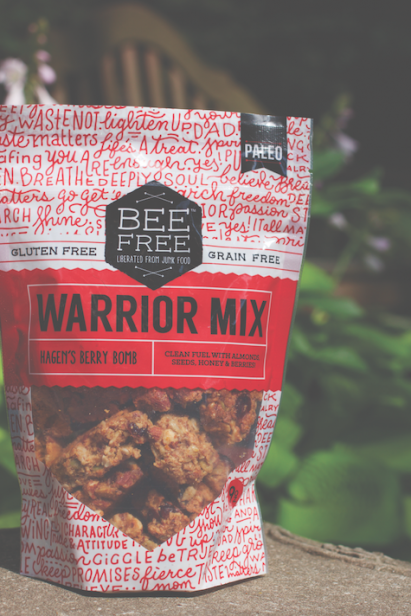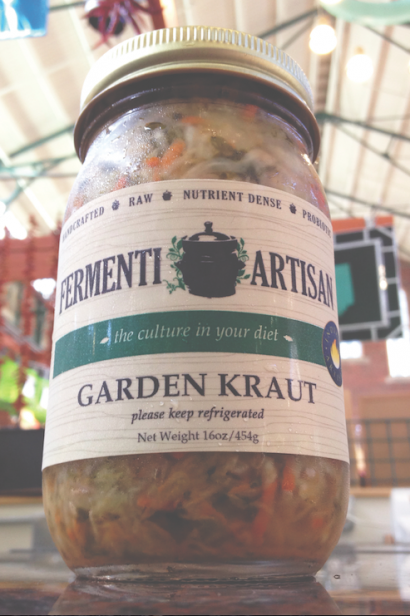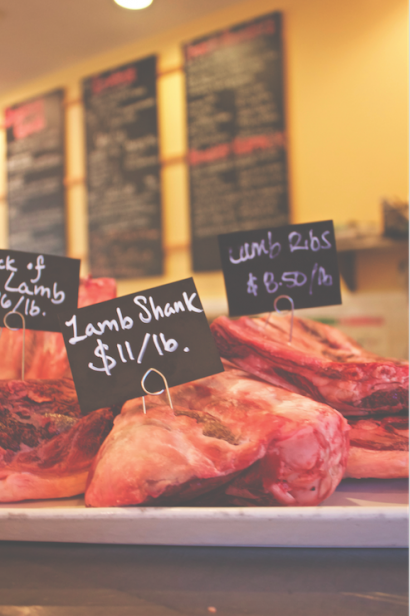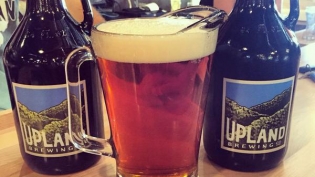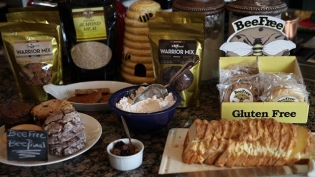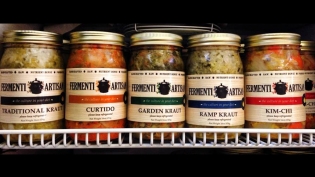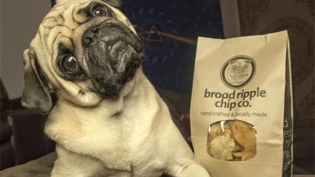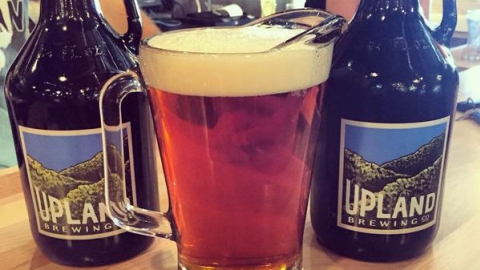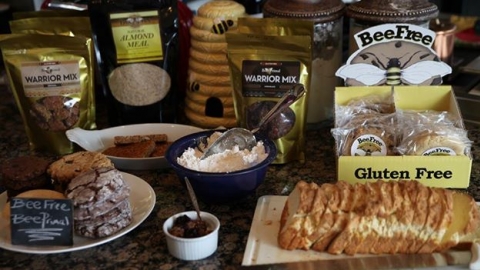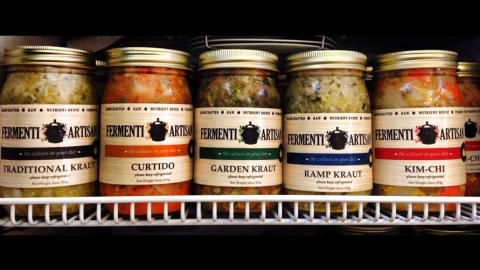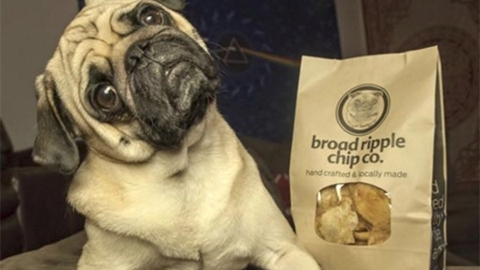Lessons Learned: Local businesses share the wisdom of experience
Even if you aren’t thinking about starting up your own cookie shop or calzone empire, there’s much to be learned from those who have the gumption to earn their living by doing what they love—and then bring it to the masses. We spoke with a variety of Central Indiana business owners—Anne Collins of Agrarian Indy, Kurt Cohen of Arni’s Restaurant, Jennifer Wiese of BeeFree, Mark McSweeney of Broad Ripple Chip Co., Mark Cox and Joshua Henson of Fermenti Artisan, Doug Dayhoff of Upland Brewing Co. and Terry Knudson of Viking Lamb—for some pro tips and advice.
Edible Indy: How did you come up with your product/idea? What kind of market research was involved?
Agrarian: Andrew Brake had started Naptown Chickens several years before the idea for Agrarian evolved. He had a good feel for the growth of the backyard chicken craze and the need for a store to serve the needs of urban chicken farmers. In discussions with Anne Collins and David Stuckert, it was clear that chicken supplies could not support a retail store but a store with a broader offering of products might be successful.
BeeFree: When we discovered that gluten-free was impactful for our son with autism, I started developing recipes for his favorite foods: chocolate chip cookies, pizza and chocolate cake. After we bought and tasted every brand available, my mom and I got busy in the kitchen. We first re-created our family favorites, then we started taking requests.
BR Chip: I had extra room in my existing business (Great Harvest Bread) and I wanted to think of something else to do with it. I had seen artisan potato chips sold in other places around the country and, after experimenting, decided to do it.
Fermenti: We decided to focus our business on fermented foods as a key beginning step toward healing the body through food and as a missing component to the standard American diet. In addition to reading and demographic research, we saw a gap in the local market for the products that we create.
Viking Lamb: My business was born out of necessity—I bought a flock to use that had some issues that needed cleaned up and I had a chance to make some money.
EI: What are the biggest challenges you have faced in starting your business?
Arni’s: The biggest challenge is always managing and maintaining the staff, keeping the employees happy and motivated. Our product has always been in high demand, but it is a people business through and through.
BeeFree: Because I came into the food business world without any experience or bag of tricks, so to say, my biggest challenges in getting started were involved with finding quality, cost-effective sources of ingredients.
Fermenti: Our biggest challenges have been lack of capital (as we are a self-funded company that has never taken on any debt, just building the business piece by piece from scratch), along with the lack of consumer education/knowledge of our products.
Viking Lamb: In 2001, lots of restaurants weren’t even looking for a local product, so I had to create a whole new state of mind. There was the Carmel Famers’ Market and not much else. And lamb—most people would look at me and say “I don’t eat it and I’m not interested in it.”
EI: How did you form your business plan?
BeeFree: The business plan for BeeFree is an evolving document. It has changed from creating a product, to turning that product into a business, to growing that product, to adding other products.
BR Chip: Little by little I worked on numbers and projections. It was a second business to begin with, so I did not have the pressure on me. I just figured whatever we can sell will be great, maybe it will grow bigger.
Upland: Every year we revisit the business plan and establish three priorities for each department to develop the following year. Every year we win some and we lose some.
Viking Lamb: I didn’t have a “real” business plan, it just evolved. I had a lot of things in my head, had a sales background and I have always been a results person.
EI: Did you have rough times where you questioned whether you should stick with it? What kept you going, and what advice can you give?
Agrarian: So far, the most significant challenge we have faced is an extended move from our original location to a much larger location.
Arni’s: There have been some very hard times, none worse than the recent recession. But getting out of the business was never considered. With almost 500 employees, it wasn’t a choice. We had to buckle down and ride it out. Hard decisions were made to cut as much expense as possible. Don’t ever think that you are running your business as efficiently as you possibly can. With a proverbial gun to our heads we found many ways to run a tighter business.
BeeFree: I would say this question is exactly what defines an entrepreneur: the willingness to take risks, fall down, get back up again and again—being so passionate about your cause or product that you are willing to stay on the course when most others would jump ship.
BR Chip: My advice would be to not have the pressures of a bank loan—or any loan, for that matter—and avoid high rent (I would get the cheapest rent/overhead I could unless it was a retail business, where location truly matters). Not having the debt pressure made all the difference in the world as far as growing the business.
Fermenti: Yes, as a self-funded company that has never taken on any debt, we constantly experience occasional rough times. The best advice we can give is to find something that you are passionate about and which contributes positively to society, start out fully funded and have outlets for your product from the start.
Upland: Your business has to be about something bigger than your own ego and income. When it is, the answers to why and how you push through the rough times will reveal themselves.
Viking Lamb: There were lots of rough times. You have to LOVE what you do—if you’re doing it for the money, go do something else.
EI: What are your recommendations for capital?
Agrarian: No small business has enough capital to take advantage of every opportunity that arises. As a new business, we would recommend that borrowing be avoided or at least kept to the absolute minimum because the ultimate success of the business is always in question. Not having unlimited capital forces the business to fund only the most essential actions and keeps the focus on only the most profitable opportunities.
Arni’s: Work with a respected bank. Go to outside investors as a last resort.
BeeFree: Once you get past the self-funding stage, the goal is for sales to generate enough cash to cover your growth and operating costs. The next logical stage, in my opinion, is to look at lines of credit. I’ve always tried to avoid selling equity in an effort to protect BeeFree’s uniqueness.
BR Chip: Keep your costs as low as possible: rent, labor, equipment—make do without every fancy machine, vehicle or utensil. And avoid loans if at all possible. If you must borrow, talk to family if you can.
Fermenti: Take/receive capital from people who can contribute to the operations and administration of the business
Upland: Many businesses die from under-capitalization, so don’t do that.
Viking Lamb: Don’t go to a bank. I knew nobody was going to lend me money on a sheep operation, so we used credit cards to originate capital—we racked up $125,000. It took organization and discipline, but we paid it off and it’s what got our business going.
EI: How important is sales and marketing to your business?
BeeFree: Well, since sales and marketing is my main focus, I think it is super important. I’m an old-fashioned girl who likes to get out there and meet people and have a live conversation and write thank-you notes. I try to mesh the modern technologies of today’s world with those of the past to give our customers a unique experience.
BR Chip: Very important, but it is easy to let it slide if you’re preoccupied with other busywork. I see a positive response to sales calls and giving out samples almost immediately.
Fermenti: Without sales there is no money, so they are absolutely one of the top priorities. With brand recognition and image being most of our marketing, and why most people buy our product, it is also very important.
Viking Lamb: It’s the most important thing we do. Standing in line or wherever, you should always be promoting your product and selling. Most businesses that fail don’t because they have too much business.
EI: When did you see success?
Agrarian: We were fortunate to have “success” from the first month in business in that we were cash-flow positive. However, we have not yet met our ultimate goals, so SUCCESS is still several years off.
BR Chip: I think once we started selling our chips in all the local grocery stores, such as Kroger, Fresh Thyme and Marsh, I knew we would be OK.
Fermenti: When the first person thanked us for contributing to the recovery of their health.
Viking Lamb: I felt legit when I walked into well-known establishments and saw my company’s name on the menu.
EI: What advice do you have for someone thinking about starting a business?
Arni’s: Prepare to work your ass off.
BeeFree: I would advise anyone wanting to start their own business to be super passionate about their brand and to be willing to work really hard, for years.
BR Chip: Make sure that you have a product people really like that is unlike other things for sale. Something that fills a niche that is currently not filled.
Upland: Be honest about your personal weaknesses, and work hard to understand the weaknesses of your business plan. Ignoring those risk areas is the most common mistake entrepreneurs make, because, by definition, entrepreneurs are optimistic and not wired to think about why they might fail.
Viking Lamb: Find someone to emulate—someone doing what you want to do or who has skills and talents that you think would apply to what you want to do.
EI: What is one resource you would recommend using?
Agrarian: Get as much advice as possible from other small business owners.
Arni’s: A good attorney and a good accountant.
BeeFree: Highrise, my customer relations management system that helps keep me connected to my customers on a timely basis.
BR Chip: I enjoyed meeting with the local free SBA SCORE counselors before I started. Also I would scour the Internet for ideas that are successful in other towns/states to find one that could be duplicated locally, or done even better.
Upland: You need to have someone in your inner circle who can play devil’s advocate and criticize your ideas and work in a safe and effective manner and in a way you can hear them.
Viking Lamb: Every time you find someone successful, particularly in what you’re doing or want to do, ask them how they did it.
To learn more about these businesses please visit or contact:
Agrarian Indy | 1051 E. 54th St. | 317.493.1166 | AgrarianIndy.com
Arni’s, multiple locations, MeetYouAtArnis.com
BeeFree | 800.677.4840 | BeeFreeGF.com
Broad Ripple Chip Company | 317.590.7687 | BroadRippleChipCo.com
Fermenti Artisan | FermentiArtisan.com
Upland, multiple locations, UplandBeer.com
Viking Lamb | 812.871.5700 | VikingLamb.com


